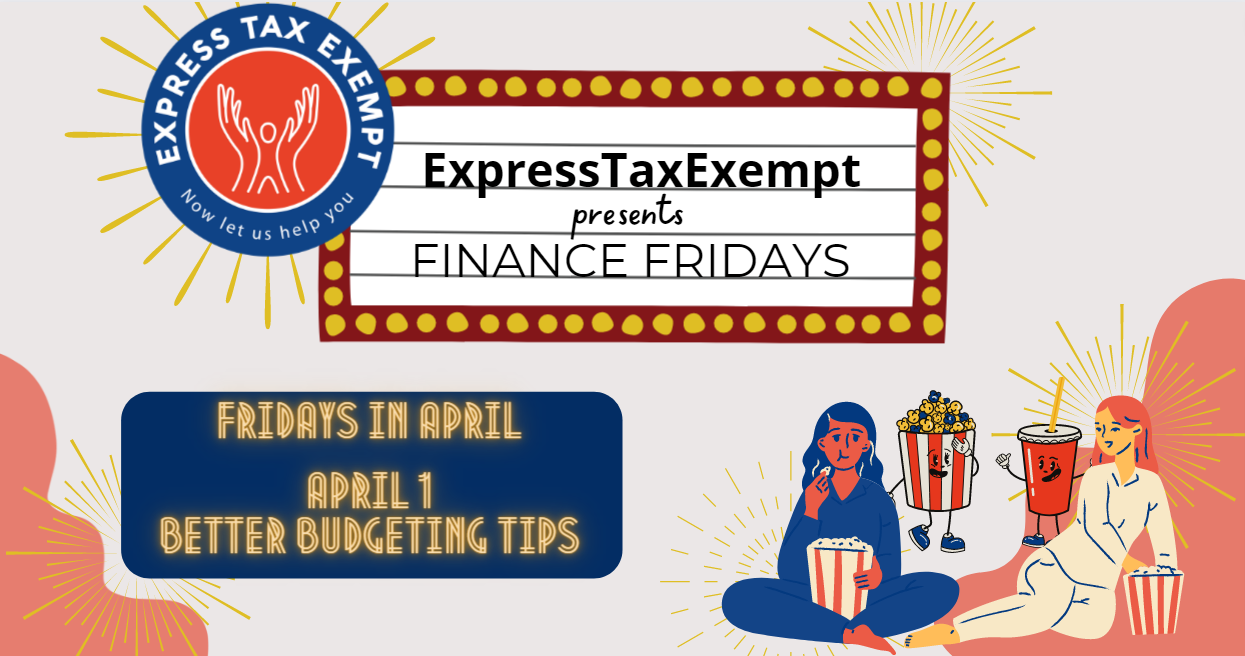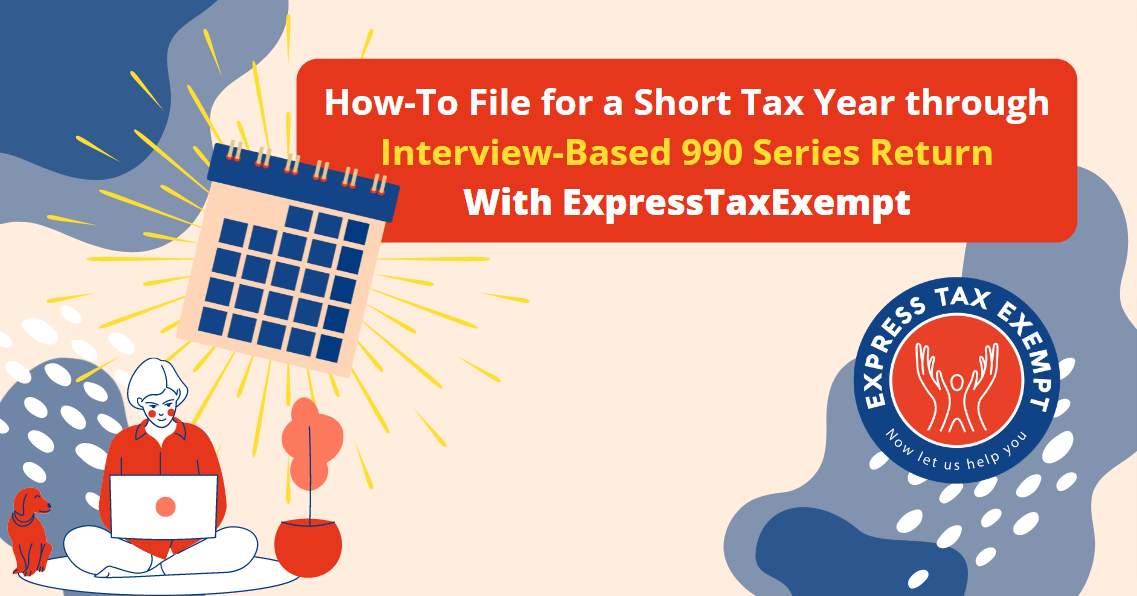




A Nonprofit’s Guide to 501(c)(3) Status and Tax Filing Requirements
In this article we will cover the following:
501(c)(3) Tax-Exempt Status and Filing Requirements - An Overview
- Updated April 21, 2023 - 8.00 AM - Admin, ExpressTaxExemptAny nonprofit organization or charitable organization that obtains the tax exemption status will be categorized under 501(c)(3) by the IRS. This article helps you to understand more about the 501(c)(3) status, how to apply for the 501(c)(3) tax-exempt status, and tax-filing requirements.
Table of Contents:
1. 501(c)(3) Tax Exempt Status - An Overview
501(c)(3) is a section of the IRS code that refers to the specific tax category of all tax-exempt organizations. The rules outlined in Section 501(c)(3) are regulated by the U.S. Treasury through the IRS.
Purpose of 501(c)(3) status
When an organization is granted 501(c)(3) tax exemption status, they are completely exempt from federal tax, meaning they don’t have to pay federal taxes.
These are the additional benefits to having 501(c)(3) tax exemption status:
- Eligibility to apply for grants and other public or private allocations available only to 501(c)(3) organizations.
- Possible exemption from state sales and property taxes (varies by state)
- The public legitimacy of IRS recognition
- Discounts on US Postal bulk-mail rates.
What types of organizations can apply for 501(c)(3) tax-exempt status?
Organizations listed under section 501(c)(3) are generally referred to as charitable organizations. IRC Section 501(c)(3) lists the following exempt purposes:
- Charitable
- Religious
- Educational or literary
- Preventing cruelty to children or animals
- Scientific or testing for public safety
- Encouraging national or international amateur sports competition
These organizations are classified by the IRS commonly as public charities and private foundations.
Public Charities
Public charities are organizations that receive funds from the public. They are,
- Churches
- Hospitals or qualified medical research organizations affiliated with hospitals, schools, colleges, and universities
-
Organizations that,
- Have an active program of fundraising
- Receive contributions from many sources,(including the general public, governmental agencies, corporations, private foundations or other public charities)
- Receive income from the conduct of activities in furtherance of the organization's exempt purposes and
- Actively function in a supporting relationship with one or more existing public charities.
Private Foundations
Private foundations receive funds from a single major source or comparatively few sources rather than receiving contributions from many sources.
Usually, these organizations are created and operated by an individual, family or corporation to support charitable activities.
Do these organizations have any limitations?
The IRS has set certain limitations on the organization's operational purposes to be eligible for tax exemption. They are,
- The organization must operate exclusively for charitable purposes.
- None of its earnings may benefit any private shareholder or individual directly.
- It may not be an action organization, i.e., it may not attempt to influence legislation as a substantial part of its activities.
- It may not participate in any campaign activity for or against political candidates.
- If the organization engages in an excess benefit transaction with a person having substantial influence over the organization, an excise tax may be imposed on the person and any organization authorities agreeing to the transaction.
2. How to apply for 501(c)(3) status
To apply for 501(c)(3) tax-exempt status, organizations should file Form 1023, the Application for Recognition of Exemption Under Section 501(c)(3) of the IRS.
Small organizations with gross receipts of less than $5,000 in a taxable year normally use Form 1023-EZ to apply for 501(c)(3) tax-exempt status.
Form 1023 filing conditions
Based on the time of filing, there will be a slight difference in the tax-exempt status of an organization.
- If Form 1023 is filed within 27 months from the date of formation of the organization, the organization will be recognized as tax-exempt right from the date of formation.
- If Form 1023 is filed after 27 months from the date of formation, the organization will be recognized as tax-exempt only from the date of filing.
Form 1023 filing requirements
Form 1023 requires the following information.
- Organization’s origin and date of formation
- Primary contact name (officer or authorized representative).
- Organizational structure and organizing documents (e.g., articles of incorporation, trust agreement).
- Organization's history and the description of the organization's past, present, and future activities.
- Compensation of the organization's officers, directors, trustees, employees, and independent contractors.
- Other members and individuals receiving benefits.
- Specific activities as outlined in the form, including any fundraisers.
- Financial data for the past four years.
How to file Form 1023
Organizations must electronically file these forms. To submit Form 1023,
you must:
- Register for an account on Pay.gov
- Enter “1023” in the search box and select it.
- Complete the form.
All other organizations described in section 501(c)(3) should file Form 1024 to apply for tax-exempt status.
Click here for more information about Form 1023.
3. How long does it take to get 501(c)(3) status?
On average, it takes 3-6 months for the IRS to grant 501(c)(3) status. Although, based on the scale of the organization’s operations, this can take as long as 9-12 months.
4. Should a 501(c)(3) Organization file Tax Returns?
Yes, the tax-exempt organizations should file 501(c)(3) tax returns annually to the IRS.
Even though there is no need to pay federal taxes, tax-exempt organizations must report their revenue, expenses, assets, and liabilities to the IRS. The Nonprofit tax returns help the IRS prevent organizations from misusing their tax-exempt status.
What form to file for 501(c)(3) tax returns?
Tax-exempt organizations complete their 501(c)(3) tax filing to the IRS using
Form 990.
There are different variants of the form designed by the IRS that depend on the organization’s size and financial activities.
| Form Type | Condition |
|---|---|
| Form 990-N | Organizations with gross receipts $50,000 or less |
| Form 990-EZ | Organizations with gross receipts less than $200,000 and total assets less than $500,000. |
| Form 990 | Organizations with gross receipts greater than or equal to $200,000 or total assets greater than or equal to $500,000 |
| Form 990-PF | Regardless of gross receipts, All Private foundations should file Form 990-PF |
When is the due date for 501(c)(3) tax filing?
The deadline for 501(c)(3) tax filing differs based on the Organization’s accounting period.
Generally, the due date to file Form 990 is the 15th day of the 5th month after the tax period ends.
- Calendar Tax period (Organization that follows the tax period from January 1 - December 31): the deadline to file Form 990 is May 15.
- Fiscal Tax period (Organization that follows a tax period that ends other than December 31): the due date to file 990 form is the 15th day of the 5th month after the tax period ends.
If the due date falls on a Saturday, Sunday, or legal holiday, file on the next business day.
Visit https://www.expresstaxexempt.com/form-990-due-date/ to find your Form 990 deadline.
5. What happens if a 501(c)(3) Organization fails to complete its tax filing on time?
Failure to complete the required 501(c)(3) tax returns according to their deadline can be catastrophic for a tax-exempt organization, resulting in potential IRS penalties and even revocation of their tax-exempt status.
Penalties
- A penalty of $20/day, not to exceed $10,500 or 5% of the gross receipts(whichever is lesser) for the year, can be charged for late filing unless the organization can provide an acceptable reason.
- Organizations with annual gross receipts exceeding $1,094,500 are subject to a penalty of $105/day (maximum $54,500 for any one return).
The penalty is applied each day that the return is late, penalties can also be applied for submitting an incomplete return or failing to meet their reporting requirements altogether.
Click here to learn more about Form 990 penalties.
Automatic revocation
This occurs when an exempt organization fails to file Form 990 for three consecutive years. Under this rule, the organization's federal tax-exempt status is automatically revoked.
Click here for more information on how to reinstate 501(c)(3) status after automatic revocation.
How long does it take to reinstate the 501(c)(3) status after automatic revocation?
The date of reinstatement will be the same as the application filing date unless the organization qualifies for reinstatement of exemption retroactive to the date of automatic revocation.
6. E-File your 501(c)(3) Tax Form 990 with ExpressTaxExempt
Simplify your Form 990 preparation using either our direct Form-Entry or Interview Style filing process. Our Software generates the required schedules automatically for you based on the information that you provide.
You can easily add your organization’s board members or directors to review & approve returns.
If you have any questions during your filing, our live customer support team is here to help you at any time by email, phone, or live chat.




